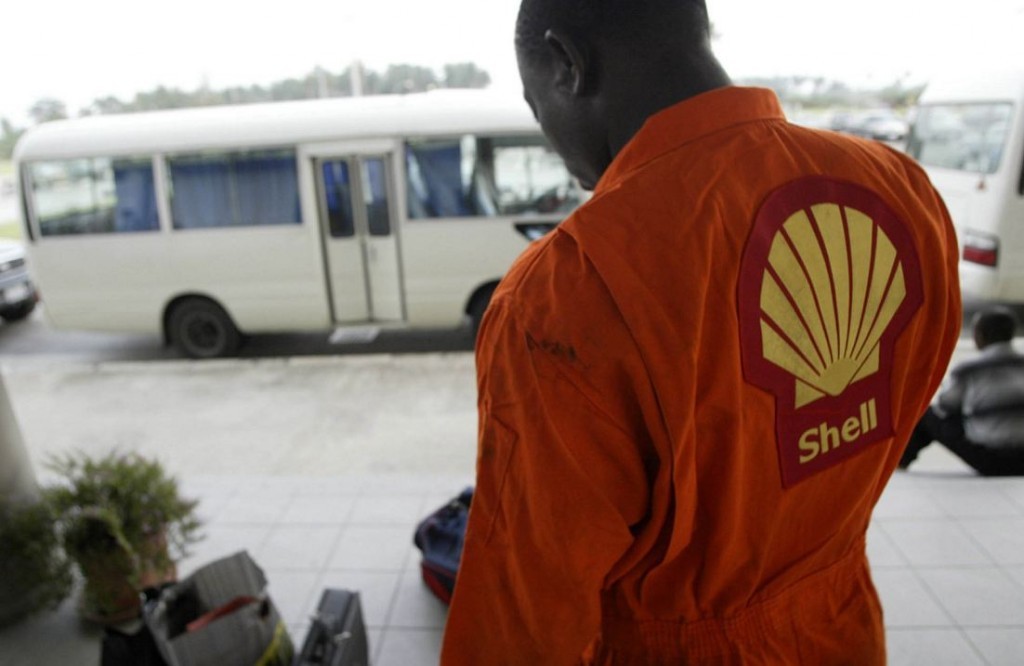
Shell has called on farmers and fishermen in Nigeria to consider offers as the latest round of an oil-spill compensation dispute ended at the High Court in London.
A Shell boss said the oil giant accepted responsibility for two oil spills in Bodo, which is in the Gokana Local Government Area of the Rivers State of Nigeria, and wanted to compensate people “genuinely” affected “fairly and quickly”.
Mutiu Sunmonu, managing director of the Shell Petroleum Development Company of Nigeria, was speaking after a High Court ruling on a series of legal issues following a preliminary hearing.
Lawyers say a trial is scheduled to take place in London in 2015.
British lawyers have taken legal action on behalf of villagers living around Bodo.
Law firm Leigh Day launched legal action more than two years ago. Lawyers said attempts at negotiation had failed.
They said the dispute related to oil spills which “experts have advised amounted to about 500,000 barrels from a Shell pipeline in 2008” – and said locals wanted compensation for environmental damage.
Leigh Day said the dispute is “one of the largest ever environmental law cases”.
Shell has said it was “disappointed” by the launch of legal action in the UK. Bosses have said they want to resolve the dispute.
The company said the dispute concerned two 2008 “operational oil spills totalling an estimated 4,000 barrels” from Shell Petroleum Company of Nigeria facilities at Bodo.
“From the outset, we’ve accepted responsibility for the two deeply regrettable operational spills in Bodo,” said Sunmonu.
“We want to compensate fairly and quickly those who have been genuinely affected and to clean up all areas where oil has been spilled from our facilities, including the many parts of Bodo which have been severely impacted by oil theft, illegal refining and sabotage activities.
“We hope the community will now direct their UK legal representatives to stop wasting even more time pursuing enormously exaggerated claims and consider sensible and fair compensation offers.”
he two sides offered different interpretations of today’s ruling.
A Shell spokesman said the judge had ruled that the interpretation of Nigerian law by Shell’s Nigerian subsidiary was correct in “all the crucial points”.
Leigh Day said the central issue argued was whether Shell should take reasonable steps to protect its infrastructure given the foreseeable risk of bunkering – illegal hacking into pipelines by oil thieves.
The law firm said the judge had decided that Shell Nigeria could be legally liable for bunkering – if it failed to take reasonable steps to protect infrastructure.
“Mr Justice Akenhead accepted that the Nigerian Oil Pipelines Act provides a comprehensive and complete regime for compensation for oil spills. This decision limits the scope of the litigation to an assessment of actual damages sustained as a result of the operational spills,” said the Shell spokesman.
“The judge dismissed the attempts of the community’s UK legal representatives to add a range of spurious additional claims over and above the compensation due under the clear Nigerian statutory regime.
“The judge further recognised the significant jurisdictional problems that arise when claims relating to Nigerian land are brought in England rather than in the Nigerian courts that have jurisdiction in relation to such land. These issues will need to be addressed during the main trial next year.”
Sunmonu added: “We’ve consistently maintained that the Bodo community’s UK legal representatives have a fundamental misunderstanding of Nigerian law, and today, the judge has agreed with us. It’s disappointing that we’ve had to go through this process, which has involved a significant amount of wasted time and legal expense.”
A Leigh Day spokesman said: “The London High Court today decided that Shell Nigeria could be legally liable for illegal bunkering of its pipelines, if it failed to take reasonable steps to protect its infrastructure.”
He added: “The central issue being argued was whether Shell should take reasonable steps to protect its infrastructure given the foreseeable risk of bunkering, illegal hacking into pipelines to steal the oil.”
And he went on: “At the hearing in front of Mr Justice Akenhead, the President of the Technological and Construction Court, Leigh Day argued that under the Nigerian Oil Pipelines Act anyone who suffered from an oil spill can claim compensation if they can show Shell was guilty of neglect in failing to ’protect, maintain or repair’ the pipeline.
“They argued that Shell has duty of care to take reasonable steps to protect their pipelines and that they could do much more to prevent the spillage of oil when their pipelines are drilled into by criminal gangs, including the use of enhanced technology, better surveillance and anti-tampering measures.
“The judge found that whilst Shell did not have an obligation to provide policing or military defence (which is the function of the state) it could be legally liable if it has failed to take other reasonable steps to protect the pipeline such as the use of appropriate technology (leak detection systems), a system of effective surveillance and reporting to the police and the provision of anti-tamper equipment. “
Martyn Day, a senior partner at Leigh Day, said: “This is a highly significant judgment. For years, Shell has argued that they are only legally liable for oil spills which are caused by operational failure of their pipelines and that they have no liability for the devastation caused by bunkered oil.
“This judgment entirely undermines that defence and states in clear terms that Shell does have potential liability if it fails to take reasonable steps to protect its pipelines.”
Leigh Day said the community around Bodo had been devastated.
Recommended for you
